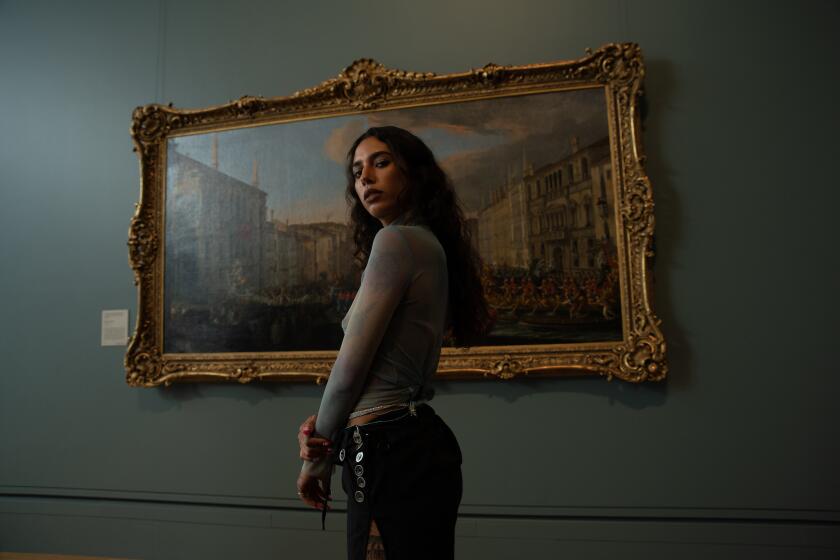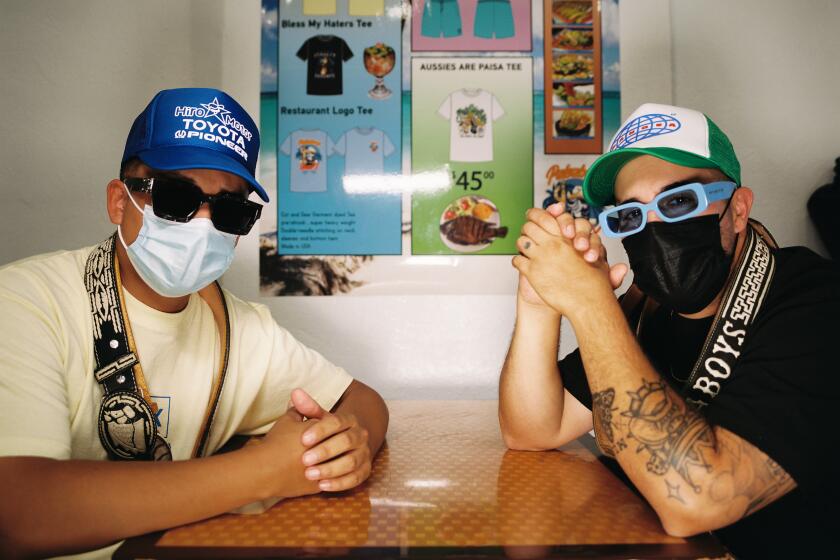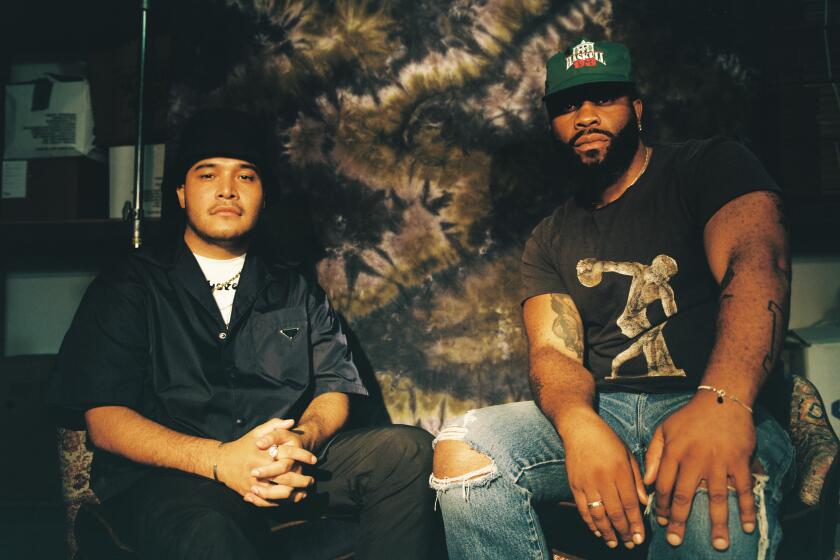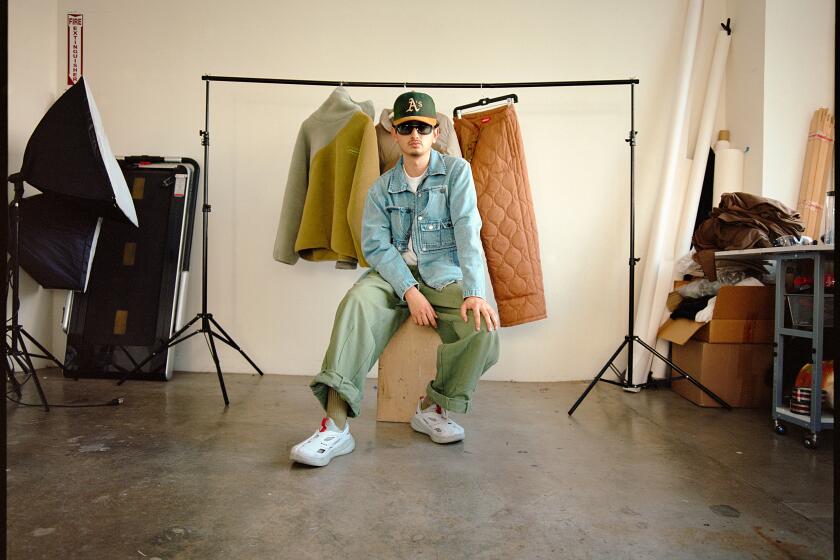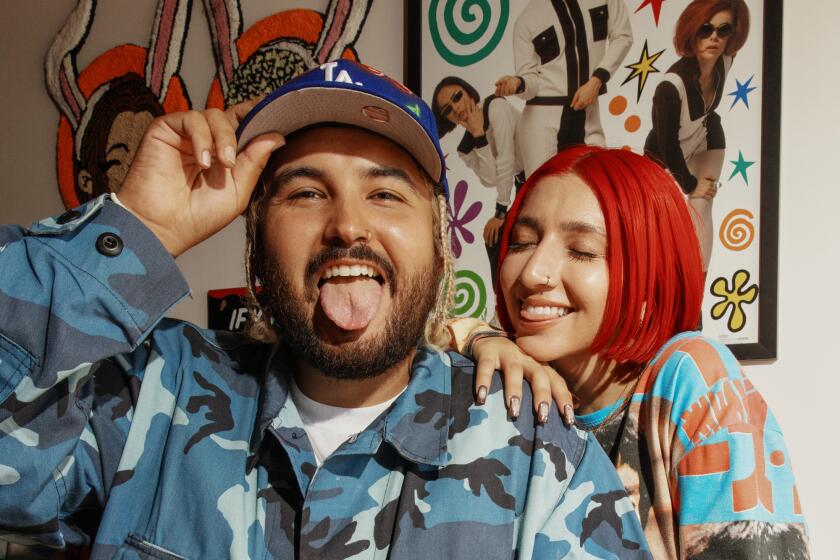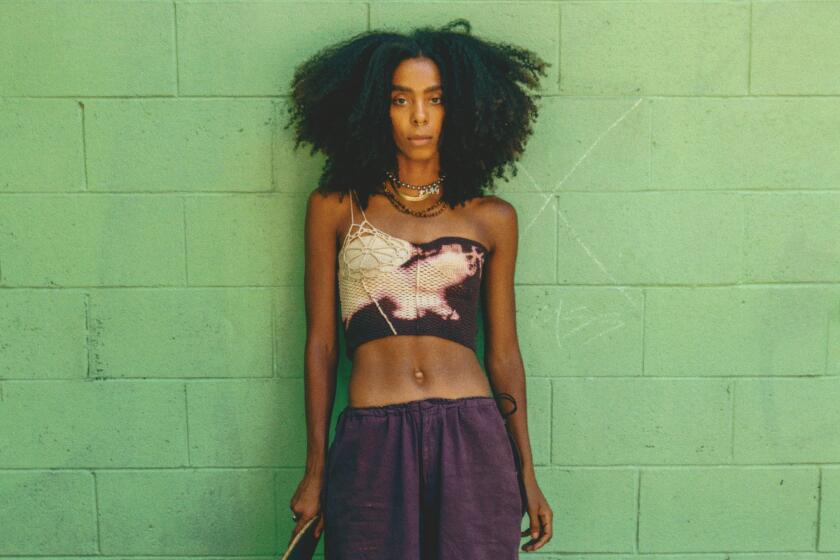- Share via
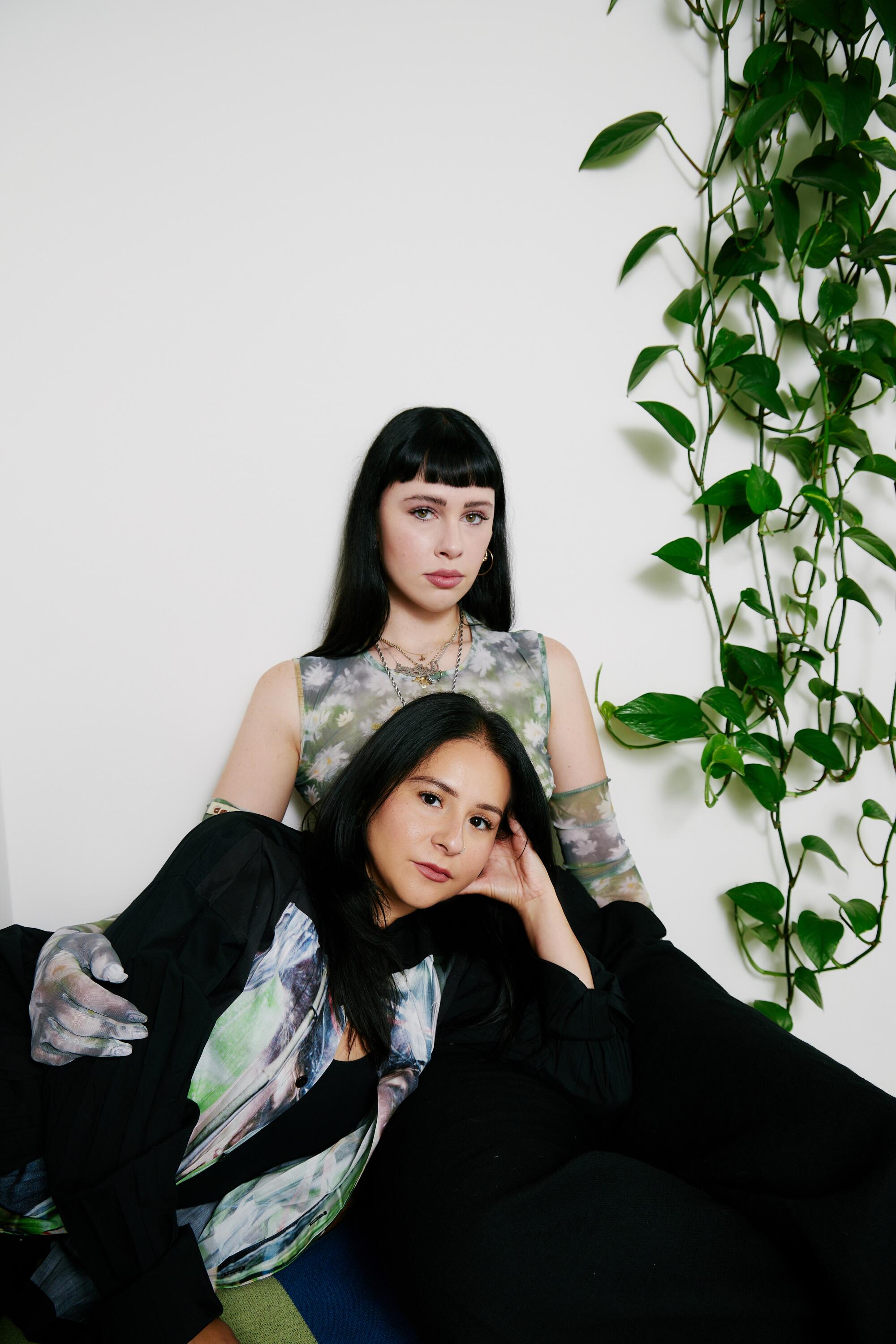
This story is part of Image issue 13, “Image Makers,” a celebration of the L.A. luminaries redefining the narrative possibilities of fashion. Read the whole issue here.
Ashley S.P. and Jennifer Zapata are emotional today. They often are when they talk about this thing they’ve built. Their eyes well up with tears, their voices crack in unison — they can’t help it. “Every day when I walk in, I’m grateful,” says Zapata. “Look what we’ve created. This beautiful space and all the people that we have met and all the friendships that we have made. I’m just like, ‘Wow, this is my life.’”
Since opening Género Neutral in 2021, S.P. and Zapata have become two figures at the center of a constructed universe. Their concept shop in Echo Park has quickly become the kind of place where communities of artists, designers and models intersect. On any given day, you’ll be sure to spot a number of small, sometimes local, often POC-owned brands like Bonnie Clyde, Equihua, Felt, Full Court Press, Danbi, Kids of Immigrants, Paisaboys and more It’s not unlikely that you might even see one of the designers posted up, catching up with S.P. and Zapata or looking for something for themselves.
Amor Prohibido’s Bryan Escareño has a penchant for testing the limits of fashion. His gender neutral collection with Género Neutral investigates the capacity for clothing to hold court in the castle of high art.
The shop was crafted to connect: Highbrow appears alongside low. Clothing is presented in a genderless way, how S.P. and Zapata wear it — and how they know other people in L.A. wear it too: fluidly. It’s not about men’s or women’s clothes, just clothes. There’s something disarming about Género; it feels aspirational and attainable, not pretentious or intimidating. On Instagram, S.P. and Zapata take photos of new arrivals — often modeling the clothes themselves or getting friends to do it — and post them to their Stories alongside pics of customers who stop by.
Nothing feels random about what’s inside the store. It’s no coincidence that many of the contemporary brands that say something with their pieces can all be found in one place.
“On a conceptual basis, from working in fashion, I think what had been missing was people who looked like us or people that were like us — whether that be women or young people or persons of color,” says S.P. “In [an industry] that has been so determined by particular ideologies or particular perspectives, we wanted a space that reflected what we weren’t seeing anywhere else. And a lot of that too is that it’s always been more than just Jenny and I. It’s our friends.”
Género Neutral has been as much of a vehicle for community for Zapata and S.P. as it has for the rest of L.A. Call it a nexus, but for Zapata and S.P., Género Neutral is a home and an homage to their friendship.

Zapata and S.P.’s origin story is kind of romantic, a platonic meet-cute they each have their own special way of recounting. As Zapata tells it: A couple months before the COVID-19 pandemic hit, Zapata and her fiancé were with a friend, looking for something to do on a Friday night when they hit up someone who happened to be out for a drink with S.P. at Bar Flores. Zapata & Co. crashed. “The conversation just flew, and then at the end of the night, I asked for her number,” Zapata says, laughing. “I was like, ‘I’d love to do this again. I need you in my life.’ It’s just so hard to make friends in a big city.”
They didn’t become only friends, they became best friends, bonding over working in fashion — Zapata as a sales merchandising associate at good hyouman and S.P. as a brand business manager for all the luxury and in-house brands at Dover Street Market Los Angeles. (She transferred to L.A. after working for the New York office.) When the pandemic hit, the two bonded over being furloughed from working in fashion, commiserating at the beach with a case of White Claw, or getting drunk at each other’s houses. They allowed each other space to vent. “It was heartbreaking for me,” says S.P. “You put so much time and effort and create such a world, or create such a life out of these other companies. And then when that is removed from you, it’s just sort of like, ‘What did I do all of this for?’”
Paisaboys is a brand built on innuendo. Its ethos might best be described as a hint — a highly specific yet deeply relatable nod toward The Culture.
But soon, those conversations shifted from a place of survival to one of hope and dreaming. S.P. and Zapata found themselves planning for the future, one in which they were working together as business partners. Zapata always had ambitions of opening a store, and when the idea was brought up — very much on an “if not now, when?” tip — something was activated inside S.P. as well. “When she said that, a light bulb or something unlocked within me because — I’m not going to start crying; I’m not going to start crying — I grew up behind a register as a little kid,” says S.P. “I’ve only known entrepreneurship. This is in my blood.”
They imagined it as a place to stretch out, a place that reflected their individual and collective tastes. An environment that offered a respite from the ones they’d experienced in fashion spaces through the years. Being laid off had put existential concerns front and center, but that they now had each other made the dream actually seem doable.
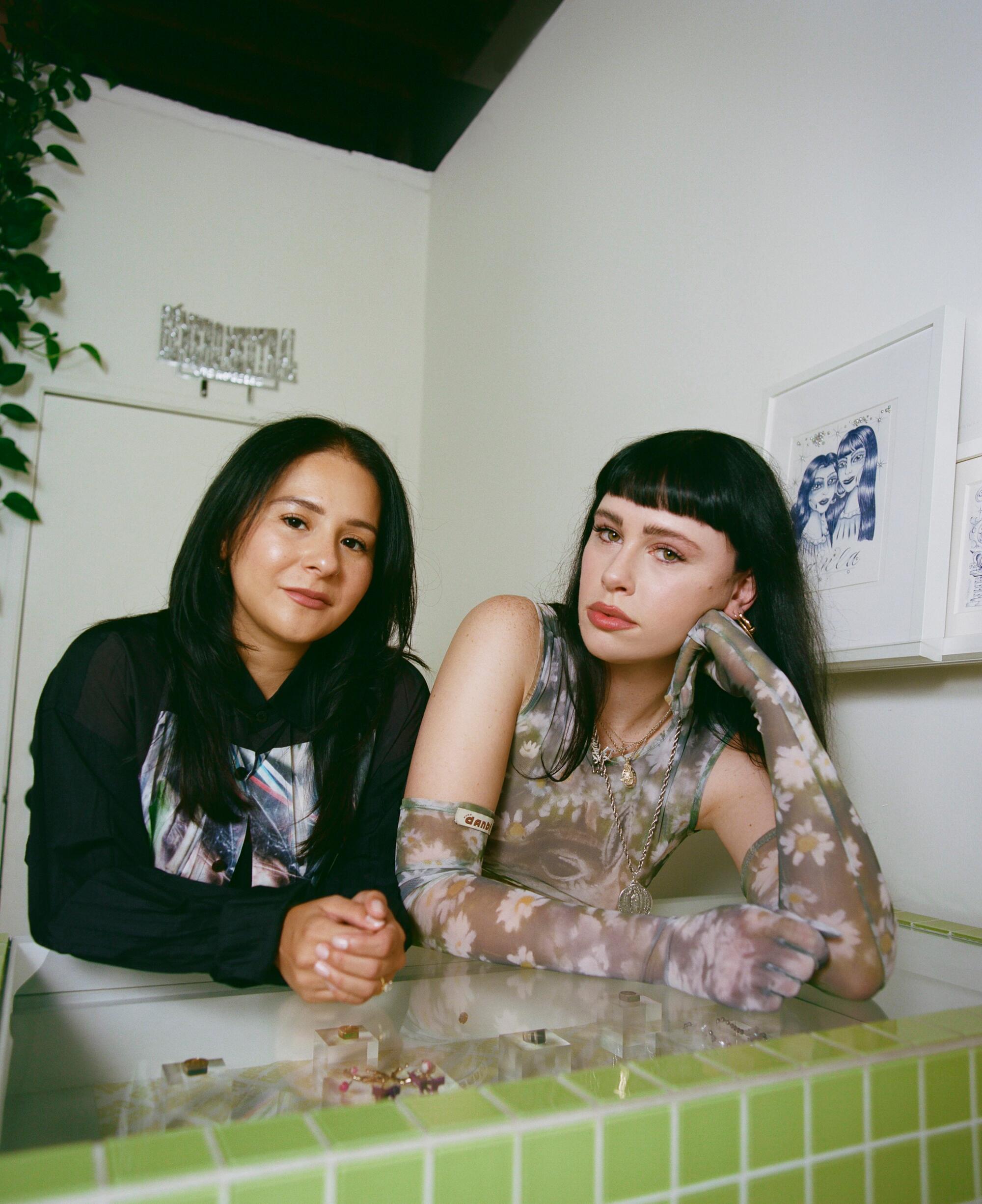
“It’s crazy, because retail was in such a shamble of reality at that point,” says S.P. “But we didn’t see [it],” says Zapata. “It felt so achievable. Like, ‘We can do this. We have time for it.’”

Physical spaces in L.A. have always been sacred. The record stops, sneaker haunts, coffee shops. But the desire for them has grown only more ravenous since the pandemic, especially ones that cater to the different sensibilities of creative people. Stores that aren’t just stores but places to hang out, places to party, places that say: “I see you.”
Maybe that’s why Género Neutral hit so hard when it opened in 2021. It almost felt like a blank canvas. The shop is located in an old building with high ceilings, a spiral staircase and huge front facing windows, and its décor is minimal and contemporary. “From a landscape perspective, we really wanted a space that was bright and open and felt comfortable and had a bit of charm,” says S.P.
In the last year, they’ve done collaborations with Latina magazine, Paisaboys, Amor Prohibido, Bueno and Kids of Immigrants. They’re seen more as a partner to these brands than just a place that houses their clothes. “These are all genuine relationships that we have made through the store,” says Zapata.
Take Kids of Immigrants. Zapata and S.P. reached out to the brand on Instagram. They had some mutual friends but were relative strangers at that point. S.P. also knew Kids was a direct-to-consumer brand, which meant there was a big chance they wouldn’t be interested in Género Neutral stocking them. But Daniel Buezo and Weleh Dennis, the duo behind Kids of Immigrants’ instantly recognizable slogans — “Support Your Friends,” “Love Has No Limits,” “Anything Is Possible” — responded that they’d love to meet and hear about it.
“They came to the shop, and we sort of had a conversation with them,” S.P. remembers. “We talked about ourselves and talked about what we’re trying to do. From that day forward, it was like, ‘Yeah, let’s f—ing go. Let’s do this.’ That’s the story with a lot of the brands we carry.”
Buezo remembers the entire interaction being around 15 minutes. “They mentioned some of the brands that were involved and there was a strong mission, but also a high taste level,” he says. “At the end of the day, it’s just fashion. So when you find a pure way to express it, more than just style, aesthetics, vibe — they had a really pure intention and the way they communicated it, you just felt it. I was like, we gotta be here. We’ve been carried there ever since.”
There’s something special that happens when Daniel Buezo and Weleh Dennis get in a room together. They have a bond, forged through the creation of their brand Kids of Immigrants.
In L.A. fashion, boutiques and concept shops are often selling exclusivity — you can have what others can’t. Since its inception, Género Neutral has seen clothing as a more communal medium — one that can bring people together. “They’re taking it back to when retailers were communities,” says Buezo.
Often, it’s the conflux of people drinking michis on Sunset that will tip you off: The GN girls are throwing a party. You’ll see the Paisaboys. At least one of the Kids of Immigrants. That photographer you’ve been following on Instagram for the last five years. The DJ everyone is booking right now. Mezcal is in rotation. Clothes are on display. S.P. and Zapata throw a party for every collaboration, every anniversary. Pretty much any chance they get. “These parties mean more than just a party,” says Zapata. “It’s building a community and celebrating each other. We have our community to depend on, and success will come after.”
S.P. and Zapata want their store to be an excuse to work with — and celebrate — their friends. At these functions, more often than not, if you see S.P., Zapata is not far behind — and vice versa. They move in unison. That’s how L.A. has come to know them: as a pair.
“Every single thing is done together,” says S.P. “When you have such a genuine trust and such a rooted connection with somebody, things just sort of flow. It was just sort of like, ‘Hey, I don’t know what the end looks like for this. But the ride is great. This process is great. And we’re going to figure it out.’”
Lettering design by Vivi Naranjo/For The Times; typeface: Goliagolia

More stories from Image
The L.A.-based designer behind TOMBOGO uses sustainable materials to create clothes that feel fluid, scrappy and utilitarian.
In L.A.’s competitive vintage scene, Nick Flanagan and Lex Muro specialize in showing you the right way to take it back.
The skater and model didn’t need the industry to show her what was cool. She figured it out by getting right within.
